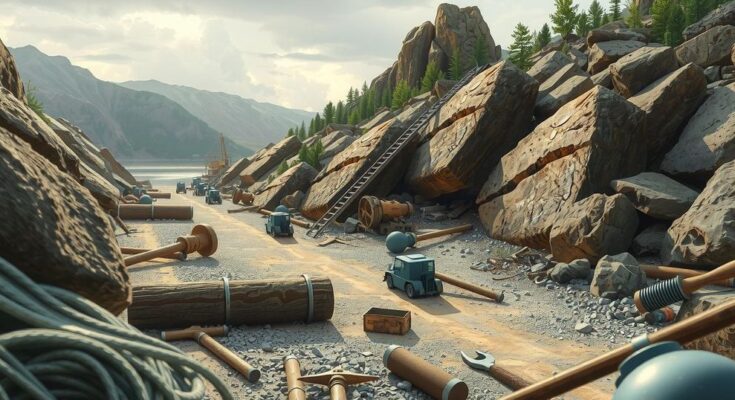Raul Jungmann of Ibram emphasizes that excessive regulatory delays impede mining development in Brazil. He expresses concerns over long licensing times, advocates for improved efficiency, and calls for strategic investments in research and development to bolster Brazil’s position in the mining sector.
Raul Jungmann, President of the Brazilian Mining Institute (Ibram), has identified regulatory hurdles as a significant barrier hindering the development of mining and the exploration of vital minerals in Brazil. During a recent seminar at the Brazilian Development Bank (BNDES) in Rio de Janeiro, he indicated that excessive red tape in environmental licensing contributes to a decline in investment opportunities within the nation.
Mr. Jungmann highlighted that while the international norm for approving mining projects is considerably shorter—ranging from half to a third of the time required in Brazil—this lengthy process could deter investments from materializing. He asserted, “Waiting 5, 6, 7 years destroys the investment capacity and causes some of them to die before they even begin.”
Despite Brazil holding 14 critical minerals essential for strategic industries, Ibram forecasts that investments in the sector could reach $68.4 billion from 2025 to 2029. However, Mr. Jungmann lamented that these figures could be higher if project approvals were expedited. He stated, “What you can’t do is wait 5, 6, 7 years; that’s just not feasible.”
Furthermore, Jungmann criticized the shortage of professionals in the licensing segment of Ibama and emphasized the necessity for digitization and integration of artificial intelligence within the agency. While he acknowledged improvements since his time as head of Ibama in the mid-1990s, he remarked that the current demand still vastly outstrips available resources.
He also touched upon the heightened global demand for critical minerals amid geopolitical turmoil. Reflecting on the implications of the electoral change in the U.S. leadership, he remarked that although the nomenclature may shift, the fundamental demand for these resources will persist. He paraphrased Drummond de Andrade, stating, “The same mistake, another picture.”
Looking ahead, Mr. Jungmann expressed concern that the promising negotiated agreement on strategic minerals might falter under the new U.S. administration. He emphasized the importance of investing in research, development, and industrialization to secure Brazil’s position in the global minerals market. He cautioned, “Without knowledge about the land, R&D investments, and improved licensing, we will miss this opportunity.”
This discussion underscores the critical need for streamlined permitting processes and strategic planning to enhance Brazil’s role in the global mining landscape, ensuring that the country does not fall back into a colonial status in the resource economy.
In summary, the Brazilian Mining Institute highlights significant regulatory obstacles affecting investment in mining, particularly concerning critical minerals. With lengthy licensing times dissuading investors and the need for digitization and enhanced professional support within Ibama, proactive steps are necessary for Brazil to realize its mining potential. Strategic investments in research and development, alongside improved policies, are essential for the nation to secure its future in the global market.
Original Source: valorinternational.globo.com




